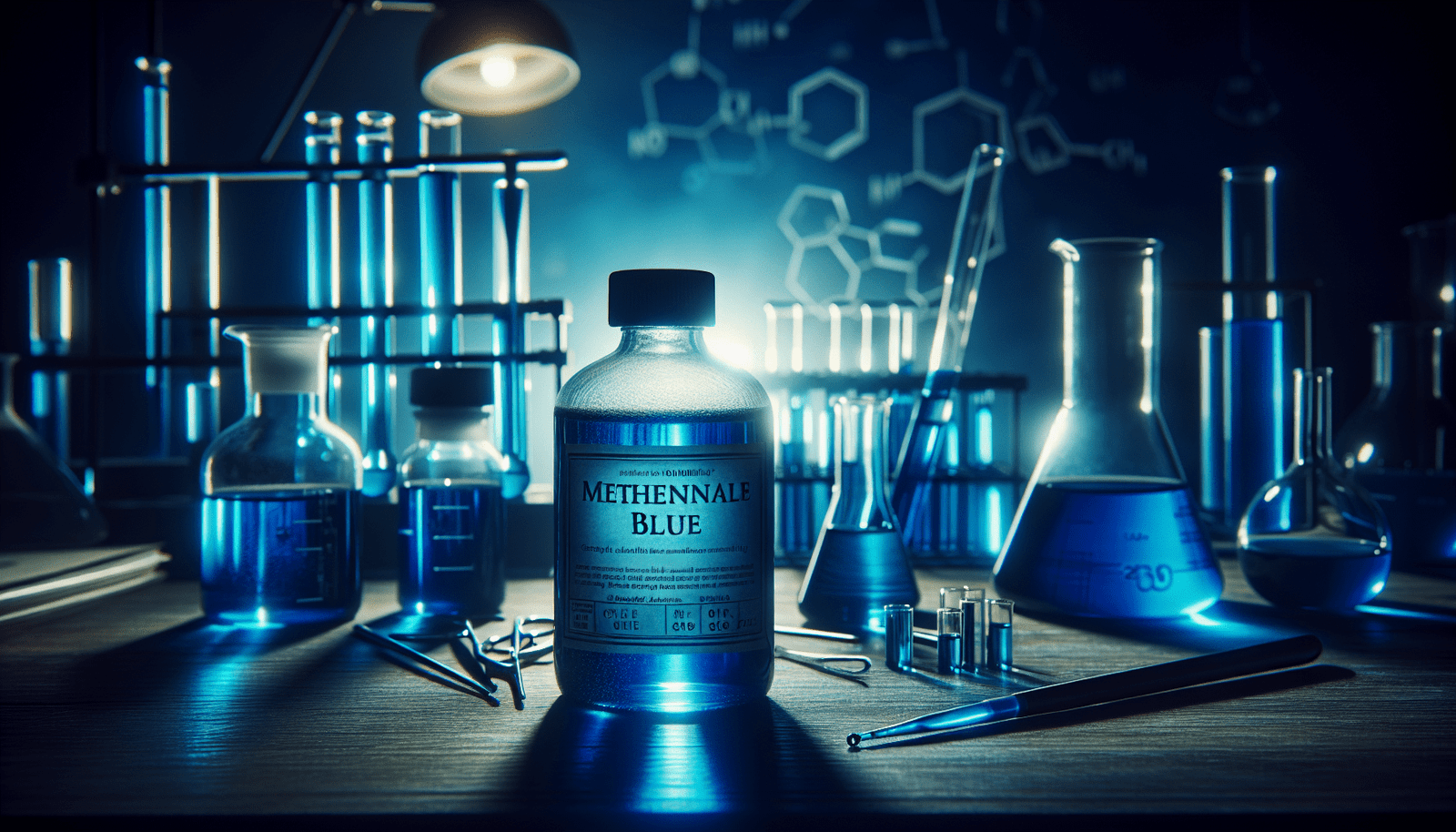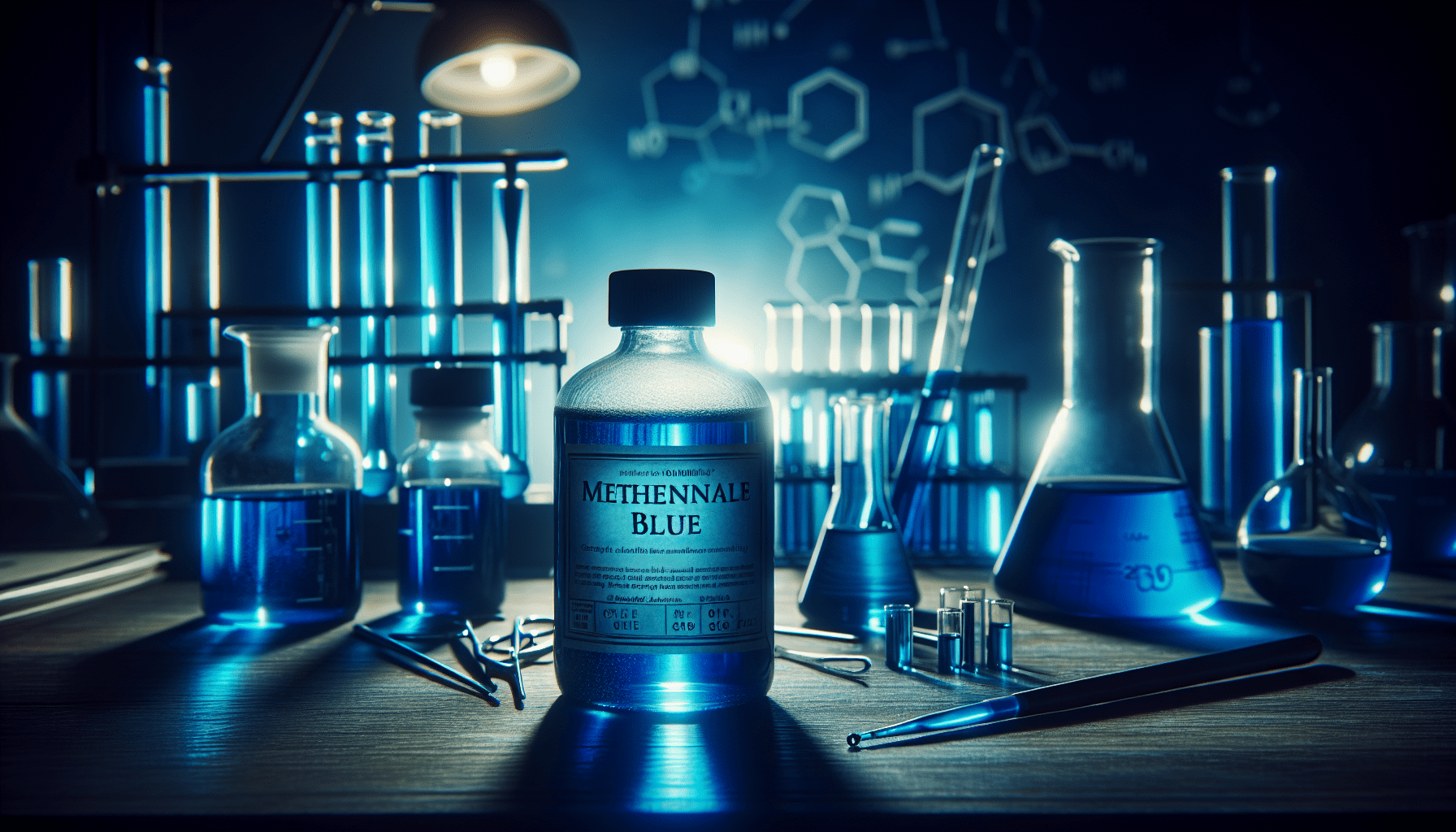
Have you ever heard about the recent fascination with Methylene Blue? It seems like everyone is raving about this blue dye, but is there more to the story than just a trendy color? Let’s take a closer look at the Methylene Blue craze and see whether the excitement surrounding it is truly justified.
What is Methylene Blue?
Methylene Blue is an organic compound that was first synthesized in the 19th century. Originally created as a dye, its uses evolved to include applications in medicine and research. You might remember it from school experiments, where it’s used to stain cells under a microscope, but it has garnered attention recently for its potential health benefits.
Historical Background
The history of Methylene Blue is quite fascinating. Initially used as a dye for textiles, it later became known in the medical community for its antiseptic properties. During the late 1800s, it was even used to treat malaria. As science progressed, researchers discovered that Methylene Blue had potential beyond its initial applications.
Chemical Composition
Methylene Blue is chemically known as thionin and has the formula C16H18ClN3S. Its unique structure allows it to easily penetrate biological membranes, which is part of why it can be effective in various medical applications. Understanding its chemical composition lays the groundwork for exploring its effects on the body.
The Recent Craze
In recent years, Methylene Blue has gained traction outside traditional medical uses. People have started taking it as a supplement, claiming benefits ranging from improved cognition to enhanced mood. But does it live up to the hype?
Social Media Influence
Social media plays a significant role in how trends develop and spread. You might have seen videos or posts showcasing Methylene Blue’s supposed benefits. Influencers and wellness enthusiasts often enthusiastically promote it, drawing in curious followers eager to try the latest health craze.
Claims and Anecdotes
The claims surrounding Methylene Blue often sound too good to be true. Some fans assert that it can boost energy, improve mental clarity, enhance memory, and even act as an anti-aging agent. However, it’s essential to critically evaluate these claims rather than simply following the hype.

Potential Benefits of Methylene Blue
Before deciding to jump on the Methylene Blue bandwagon, you should familiarize yourself with the purported benefits, even if they are still being investigated.
Cognitive Enhancement
Cognitive enhancement is one of the most popular claims associated with Methylene Blue. Some studies suggest that it may boost mitochondrial function in brain cells, leading to improved energy production and cognitive performance. You might find this particularly interesting if you’re looking for ways to improve your focus or memory.
Antioxidant Properties
Methylene Blue is also said to possess antioxidant properties. Antioxidants help combat oxidative stress, which is linked to various health issues and aging. By reducing oxidative damage, it could potentially lead to better overall health—though more research is needed to determine its effectiveness in this regard.
Antimicrobial Effects
The compound has demonstrated antimicrobial activity against various pathogens. This ancient use as an antiseptic still rings true, as it may help fight infections. However, it’s crucial to consult a healthcare professional before considering it for this purpose.
Scientific Research
When examining any health claim, you should lean on scientific research for validation. The excitement around Methylene Blue has led to some studies investigating its potential. Here’s a concise overview of some relevant findings:
| Study Focus | Key Findings |
|---|---|
| Cognitive Function | Some studies show potential cognitive enhancement effects, mainly in Alzheimer’s models, but human results are preliminary. |
| Antioxidant Activity | In vitro studies suggest antioxidant properties, but more extensive human trials are needed to confirm efficacy and safety. |
| Antimicrobial Efficacy | Some studies indicate it can combat certain bacteria and parasites, but clinical applications are limited. |
Limitations of Current Research
You should approach these studies with caution. While some results seem promising, many of the trials are preliminary or conducted on animals rather than humans. This means further research is needed before Methylene Blue can be touted as a miracle compound.

Risks and Side Effects
You may be tempted by the potential benefits of Methylene Blue, but understanding the risks is vital. Every substance can have a downside, and Methylene Blue is no exception.
Side Effects
Some users report mild side effects, such as:
- Skin Staining: As a dye, it can stain skin and other surfaces.
- Gastrointestinal Issues: Some have experienced nausea or upset stomach.
- Headaches: There are reports of headaches in some people after consuming it.
Contraindications
It’s especially important to check for any contraindications. If you’re taking certain medications, such as antidepressants or anti-anxiety medications that affect serotonin levels, Methylene Blue could interfere with their effectiveness. Always chat with a healthcare provider before starting any new supplement.
Legal Status and Regulation
While Methylene Blue is often available for purchase as a supplement, it’s vital to acknowledge that the supplement industry isn’t as tightly regulated in many countries as pharmaceuticals are. So, you need to do your homework before buying products containing it.
Quality Control
To ensure what you’re taking is safe, you should look for products that have third-party testing or are certified by reputable organizations. Quality can vary significantly across brands, and you don’t want to risk your health on an unreliable supplement.
Methylene Blue vs. Other Cognitive Enhancers
In a market flooded with nootropics and cognitive enhancers, how does Methylene Blue compare?
Popular Alternatives
You may be familiar with several other popular cognitive enhancers like:
| Substance | Claims/Uses |
|---|---|
| Caffeine | Increases alertness and concentration. |
| L-theanine | Reduces anxiety and promotes relaxation. |
| Omega-3 Fatty Acids | Supports brain health and cognitive function. |
| Ginkgo Biloba | May improve memory and cognitive speed. |
Each of these substances has been widely researched and recommended, while Methylene Blue hasn’t been as thoroughly studied, especially in healthy individuals.
Comparisons
The excitement around Methylene Blue might catch your attention, but the existing evidence for more well-known supplements is more robust. If cognitive enhancement is your goal, the established alternatives might be a safer bet based on available research.
The Bottom Line: Is the Craze Justified?
After examining the layers of the Methylene Blue craze, it’s important to ask yourself: Is the enthusiasm justified?
Conclusion
While potential benefits exist, they’re far from conclusive. You must balance the allure of Methylene Blue against the current limits of scientific research and possible side effects. If you’re drawn to the idea of trying Methylene Blue, proceed with caution. Ensure you consult health professionals and consider thoroughly researching any product before use.
Remember, health trends often come with a mixture of hype and genuine benefits. You should prioritize your well-being by seeking reliable information and making informed decisions.
Final Thoughts
In the end, whether or not Methylene Blue is worth the hype largely depends on your circumstances and desires. It’s intriguing, but a critical eye is essential when considering new supplements in your health regimen.
As always, stay informed and prioritize your health decisions with careful consideration and guidance from trusted sources. Ultimately, it’s your body and your health—ensuring you make the right choices should always take precedence.